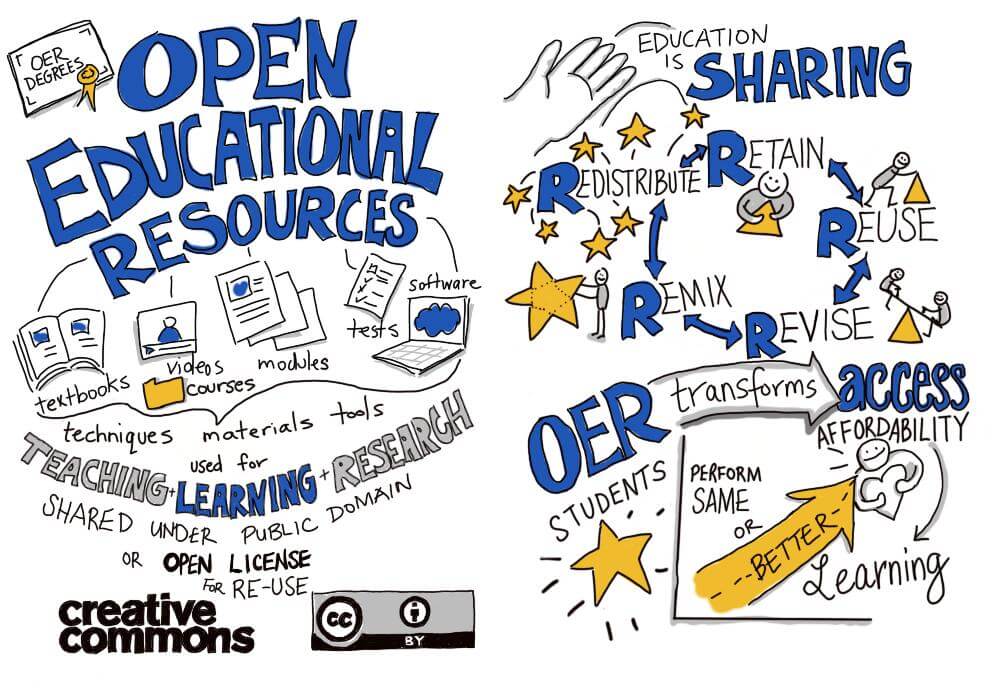Touro Library Receives Grant from Network of the National Library of Medicine-Middle Atlantic Region
$18K Grant Will Fund Open Educational Resources Projects

Touro Libraries has been awarded an $18,000 grant from the Network of the National Library of Medicine-Middle Atlantic Region to develop and advocate for Open Education Resources (OER).
OER is the catchall term for any resources or research material in the public domain or licensed in a way that can be accessed, edited, and shared for free. As part of the grant, the library will establish an OER Fellowship for allied health and health sciences on the undergraduate and graduate levels. Up to six faculty members will be eligible for the fellowship for the 2020-2021 academic year and receive a stipend of $500 for the publication of an open educational resource. Faculty members are also eligible for the fellowship if they plan to adopt or edit an existing OER.
“Even before the pandemic it was a priority for Touro Libraries to get OER into the classroom,” explained Georgia Westbrook, MSLIS, Touro College’s Open Educational Resources & Instruction Librarian. “We’ll be supporting our fellows on an individual level as they work on their project, while simultaneously developing an overarching strategic plan for the OER initiative.”
The grant is a continuation of the Touro College Libraries Open Touro Initiative that began in 2018 with the goal of raising awareness and assisting faculty members in adopting and adapting OER for their classrooms.
Westbrook and Sara Tabaei, MLS, MA, Touro College Library Information Literacy Director, spoke of the manifold benefits of OER material, both as a means of making higher education more affordable and as a way of addressing new developments in the world.
“Open textbooks are free and of high quality,” said Tabaei. “Textbooks are otherwise prohibitively expensive for many of our students and this is one way we can reduce the overall cost of university. At the same time, OER textbooks can be really customized as opposed to typical commercial textbooks. For example, if someone in our medical faculty wanted to address Black Lives Matter or the COVID-19 pandemic in the syllabus, they would be able to do that easily using an OER textbook.”
Westbrook stressed the value of OER materials given the recent pandemic.
“OER provide flexibility,” added Westbrook. “The faculty members who use OER textbooks had no disruption in terms of students having access to course materials, but for faculty members that use the physical library reserve system there was a scramble to ensure digital material was available. OER is a great resource for teaching during uncertain times.”
Westbrook and Tabaei are also hoping for a snowball effect for other OER across the Touro College system.
“Our biggest goal is having tangible OER for our faculty members,” said Westbrook. “We want our faculty and schools to be energized about OER and spread the word about it. We also want our faculty to feel a sense of ownership over the OER they develop.”
“Our OER fellows will become advocates and ambassadors for OER,” said Tabaei. “They will encourage collaboration and encourage their peers to begin taking advantage of OER.”
Faculty who are affiliated with behavioral analysis, biology, chemistry and clinical mental health, among other, related disciples, are eligible to apply.
Developed resources reported in this story are supported by the National Library of Medicine (NLM), National Institutes of Health (NIH) under cooperative agreement number UG4LM012342 with the University of Pittsburgh, Health Sciences Library System. The content is solely the responsibility of the authors and does not necessarily represent the official views of the National Institutes of Health.

